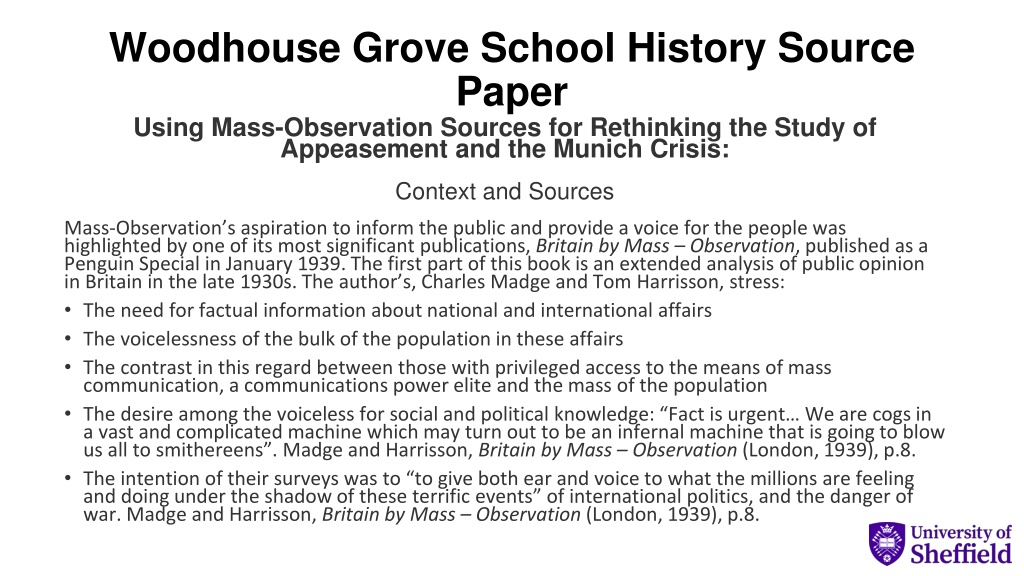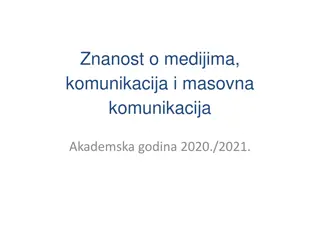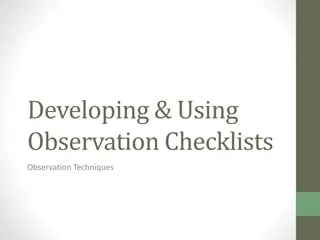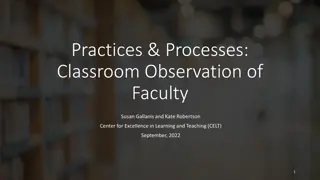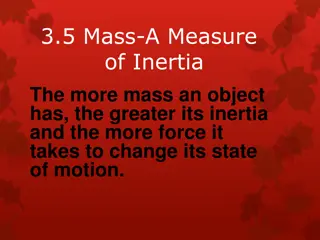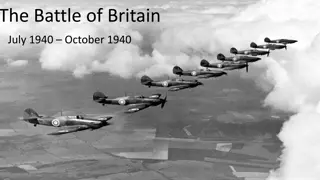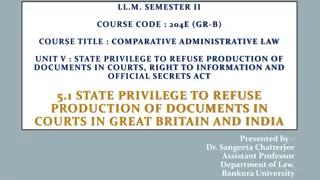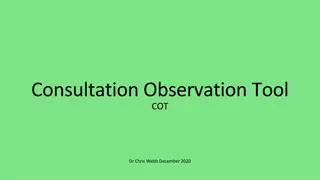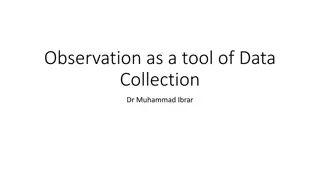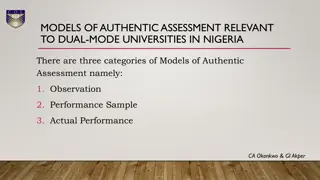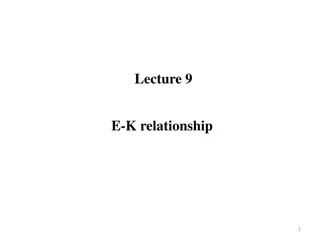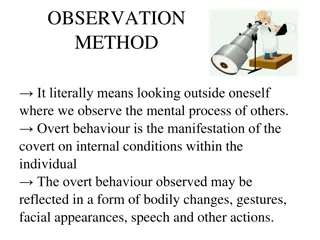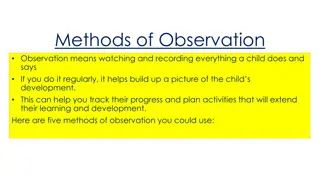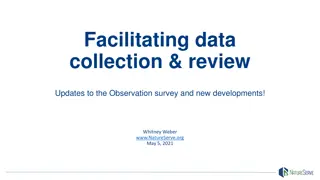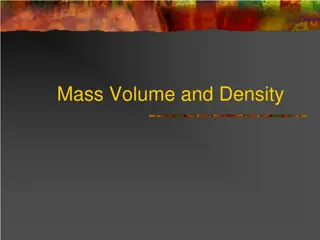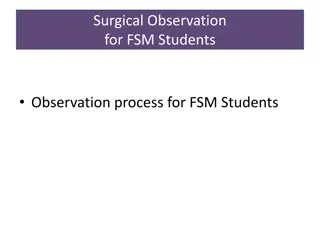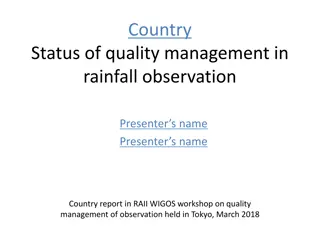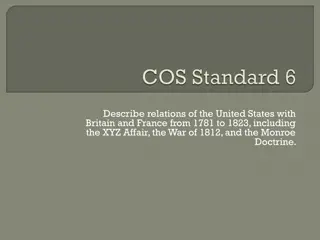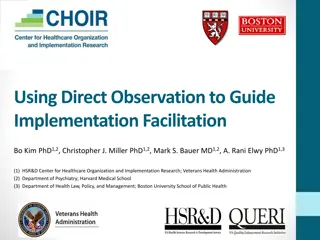Mass Observation in Britain: A Tool for Public Understanding in the Late 1930s
In the late 1930s, Mass Observation played a vital role in understanding public opinion in Britain amidst international crises like the Munich Crisis. Through recruiting volunteers to provide personal observations and conducting focused surveys, Mass Observation aimed to give voice to ordinary people. The contrast between public and private opinions during the Munich Crisis shed light on the importance of diverse perspectives. This innovative approach of Mass Observation provided insights into the depths of public ignorance and prejudices, reflecting the urgent need for factual information and social and political knowledge.
Download Presentation

Please find below an Image/Link to download the presentation.
The content on the website is provided AS IS for your information and personal use only. It may not be sold, licensed, or shared on other websites without obtaining consent from the author. Download presentation by click this link. If you encounter any issues during the download, it is possible that the publisher has removed the file from their server.
E N D
Presentation Transcript
Woodhouse Grove School History Source Paper Using Mass-Observation Sources for Rethinking the Study of Appeasement and the Munich Crisis: Context and Sources Mass-Observation s aspiration to inform the public and provide a voice for the people was highlighted by one of its most significant publications, Britain by Mass Observation, published as a Penguin Special in January 1939. The first part of this book is an extended analysis of public opinion in Britain in the late 1930s. The author s, Charles Madge and Tom Harrisson, stress: The need for factual information about national and international affairs The voicelessness of the bulk of the population in these affairs The contrast in this regard between those with privileged access to the means of mass communication, a communications power elite and the mass of the population The desire among the voiceless for social and political knowledge: Fact is urgent We are cogs in a vast and complicated machine which may turn out to be an infernal machine that is going to blow us all to smithereens . Madge and Harrisson, Britain by Mass Observation (London, 1939), p.8. The intention of their surveys was to to give both ear and voice to what the millions are feeling and doing under the shadow of these terrific events of international politics, and the danger of war. Madge and Harrisson, Britain by Mass Observation (London, 1939), p.8.
How did Mass Observation work? What methods did it develop? With Mass-Observation, the first step was to recruit a body of volunteers - Mass-Observers - from all walks of life who would send in regularly produced personal observations and accounts. These observers would also respond to focused surveys of specific topics or events. The main idea was that these studies would be of the people and by the people. From the outset Mass-Observation collected more material than it could analyse. By the end of the first year of the monthly day surveys had amassed over 2 million words from nearly 600 individuals, most of them recruited via The New Statesman, and 3 researchers. During the Munich Crisis, volunteers monitored public reactions and exposed the gulf between press representations of public opinion (supportive of Chamberlain), and the more critical private opinion of ordinary people. Their findings were published in January 1939 in the bestselling Penguin Special, written by Mass Observation, alongside essays on popular culture, derived from the work in Bolton and London. Mass observation was a brave and energetic endeavour, and it was relevant at the time in providing the wider public with new outlets anew means of expression, even if what M O surveys often tended to reveal was the degree of public ignorance, and the depth of prejudices and the depth of prejudices racial, gender, political, and class. In the longer term, it gives real insight into what people thought. NB. This introductory text about Mass-Observation has been extracted from the published work of Professor Julie V. Gottlieb.
Source A: Front cover of the Daily Sketch newspaper, 29thSept 1938. The image can be viewed from this link. https://www.alamy.com/1938-daily-sketch-front-page-neville- chamberlain-munich-crisis-image257327670.html Source B: Photograph of crowds applauding Chamberlain at the window of 10 Downing Street following his return from Munich, 30thSeptember 1938 The image can be viewed from this link. https://www.gettyimages.co.uk/photos/downing-st-neville
Source C: From the Worktown Collection, Box, 50 (Mass-Observation Archive) Ambivalence about Chamberlain but continuing gratitude that he has kept the country out of War (Heading devised by Professor Julie V. Gottlieb but not acknowledged in the original test paper) Weaver, F., 40: Lots of discussion about world affairs in the mill at the moment. Hitler is the main topic. They don t believe in Chamberlain at the mill they think he s a bit of a fascist. But he s kept us out of war, hasn t he, we don t want war. Sometimes I like him, sometimes I don t. I alter my views a lot. I don t want war, that s all I m bothered about. I m not saying I m afraid of it; I ve put my name down to drive an ambulance, but they won t let me because I ve no driving license . (Re: Czech occupation, 4/4/39, Worktown Collection, Box 50, W 50/A Churchill and Chamberlain, Mass-Observation Archive, University of Sussex) Source D: (Mass-Observation Archive) Gendering of Chamberlain as soft and too old. Swift turns in public opinion and growing hostility to Chamberlain, from hero to traitor (Heading devised by Professor Julie V. Gottlieb but not acknowledged in the original test paper) F, 28, C: I was on the bus coming home from Manchester last night, and there were two men talking behind me about the traitors in the government Chamberlain included. I think he should be shot out . F, 27, C: You know what I think of Chamberlain. I think he should ve been shot, a long time ago . (Re: Chamberlain, Bolton , 3/7/40, Worktown Collection, Box 50, W 50/A Churchill and Chamberlain, Mass-Observation Archive, University of Sussex)
Source E: (Mass-Observation Archive) F, 35 C: `I don t think any of them should be in the government. I never did like Chamberlain, even when he was Prime Minister. I don t like the look of him` M, 40, D I ve nowt against him, but Churchill s more than man for times, like these, or Duff Cooper, not Chamberlain. He s too soft, and he s too old. No, Chamberlain isn t the man, and it s time he gave way . ( Re-: Chamberlain, Bolton , 3/7/40, work time collection, Box 50, W 50/a Churchill and Chamberlain) Source F: From the Manchester Guardian, Tuesday, October 4, 1938. THE MUNICH AGREEMENT- AND AFTER The Funeral of British Honour To The editor of The Manchester Guardian Sir, The flowers piled before 10, Downing Street are very fitting for the funeral of British honour and, it may be, of the British Empire. For sheer degradation, the frenzies of last Friday beat even the night of Mafeking. (NB. a reference to popular celebrations in Britain when the South African town of Mafeking was relieved by British troops during the Boer War in 1900)
I appreciate the Prime Ministers love of peace. I know the horrors of war a great deal better than he can. But when he returns from saving the skins from a blackmailer at the price of other people`s flesh, and waves, laughing with glee, a piece of paper with Herr Hitler s name on it, if it were not ghastly, it would be grotesque. No doubt he has never read Mein Kampf in German. But to forget, so utterly, the Reichstag fire, and the occupation of the Rhineland, and June 30, 1934, and the fall of Austria! We have lost the courage to see things as they are. And yet Herr Hitler has kindly put down for us in black-and-white that program that he is so faithfully carrying out. (Four he keeps his threats, though not his promises.) Alliance with Italy, and England; the annihilation of France; the conquest for the German plough of the Ukraine; a Reich of 250,000,000. And then? I may be wrong. No one can tell. There are no short prophecies in politics, as even Bismarck owned. But just because all roads lead none knows whither, all the more reason to keep the straight path of honour. This is the really unpardonable thing in the conduct of Mr Chamberlain. Even if what he did were the right thing to do, this is not the way to do it. Any really great man who had felt forced to sacrifice a small nation, trusted in him would at least have returned full of anguish and shame. But Mr Chamberlain, but he had good intentions has no finer sense of honour. He lent himself with complacency to the shrieking adulation of a London that has lost all dignity, without one thought for the agony of Prague. Leaders should have some touch of finer mettle. Mr Chamberlain, canting of peace, with honour , has they debased the moral currency of England. And not for the first time; and not, I fear, for the last. Meanwhile, the past is past, however, shameful. What now ? If we have any respect we shall remedy at once that outrageous omission by which all Sudetens in Czech prisons are to be liberated, while no word is said side of the Czechs dragged across the frontier into German captivity or arrested in Germany.
Secondly, we shall compensate Czechoslovakia for the property we have forced to leave to the invader the machinery in Czech- owned factories, the fortifications, and their artillery, which belong to the Czech State as a whole, not to the Sudetens, as indefeasibly as the very streets of Prague. Thirdly, unless we propose to barricade ourselves behind pieces of paper kindly autographed by Herr Hitler, we shall look a little better to our defences, even if it means conscription in the near future. As I watched last week in the villages of Alsace- Lorraine, the young men sadly, but loyally leaving their for the colours, it was impossible to feel that we are in England were doing our share. And a citizen army is to some extent a safeguard, which we may yet need, against Fascism at home. Yours, etc, F.L.Lucas King`s College, Cambridge, October 1.
DID EVERYONE BELIEVE THAT CHAMBERLAIN WAS A HERO? Option B - 20thcentury topic Study the background information and the sources carefully and then answer ALL the questions Background Information In 1938, British Prime Minister, Neville Chamberlain met Nazi leader Adolf Hitler at a summit in Munich to try and avert a war. Chamberlain emerged with his famous piece of paper . Did everyone believe that Chamberlain was a `hero`? 1 - Study sources A and B. How far do these two sources agree? Explain your answer, using details of the sources. (7). 2 - Study sources B and C. Does Source C prove Source B to be untrue? Explain your answer, using details of the sources and your knowledge. (8). 3 Study sources D and E Why were these sources published in 1939? Explain your answer using details of the sources and your knowledge (7). 4 Source F Are you surprised by this source? Explain your answer, using details of the source and your knowledge (7) 5 Study ALL the sources. How far do these sources provide convincing evidence that Chamberlain was a `hero`? Use the sources to explain your answer.
